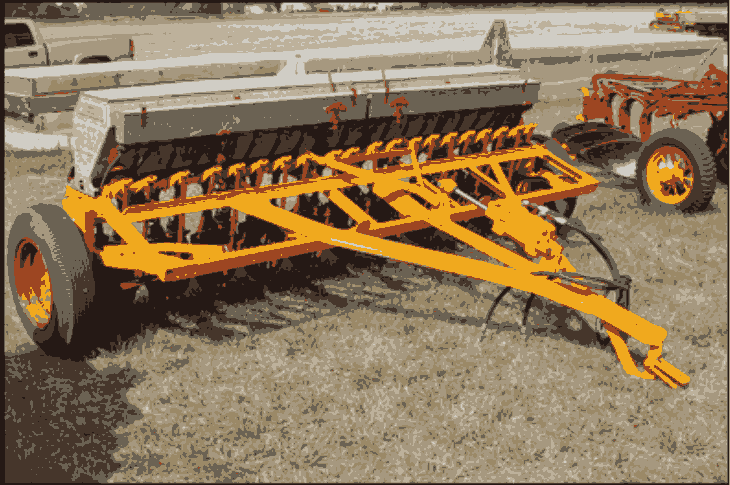Crop Production and Management Class 8 Extra Questions and Answers Free PDF Download
FAQs on Important Questions For Class 8 Science Chapter 1 Crop Production and Management - 2025-26
1. What are the key agricultural practices a student must know for the CBSE Class 8 Science exam 2025-26?
For Chapter 1, Crop Production and Management, students should be familiar with the seven key agricultural practices in order. These are often asked as a long-answer question:
- Preparation of Soil: The first step involving ploughing and levelling.
- Sowing: The process of planting seeds.
- Adding Manure and Fertilisers: Supplying nutrients to the soil.
- Irrigation: Supplying water to crops at regular intervals.
- Protecting from Weeds: The removal of unwanted plants.
- Harvesting: The cutting of mature crops.
- Storage: Storing the grain safely after harvesting.
2. What is the difference between Kharif and Rabi crops? Provide examples for each as per the NCERT syllabus.
This is a frequently asked 2 or 3-mark question. The key differences are:
- Kharif Crops: These are sown in the rainy season (usually June-July) and harvested in autumn (September-October). They require more water. Examples include paddy (rice), maize, soybean, and cotton.
- Rabi Crops: These are sown in the winter season (usually October-November) and harvested in spring (March-April). They require less water than Kharif crops. Examples include wheat, gram, pea, and mustard.
3. Why are manures considered better than chemical fertilisers for long-term crop production?
This is a high-order thinking question (HOTS) often asked for 3 marks. Manure, being an organic substance, is considered superior to chemical fertilisers for several reasons:
- It enhances the water-holding capacity of the soil.
- It makes the soil porous, which facilitates the exchange of gases.
- It increases the number of friendly microbes in the soil, improving soil health.
- It improves the overall texture and fertility of the soil without causing pollution.
4. Explain the process a farmer uses to select healthy seeds from a batch before sowing.
A common activity-based question asks how to separate healthy seeds. The method is based on density. A farmer can take the seeds and put them in a bucket of water. Damaged seeds are often hollow or eaten by pests, making them lighter. These lighter, damaged seeds will float on the water's surface. The healthy, heavier seeds will sink to the bottom and can then be collected for sowing.
5. What are modern methods of irrigation and why are they important in regions with water scarcity?
Modern irrigation methods are designed to use water economically. Their importance lies in conserving water. The two main systems are:
- Sprinkler System: Water is sprayed on the crops through rotating nozzles, much like rainfall. It is very effective for uneven land and sandy soil where water is not available in abundance.
- Drip System: Water falls drop by drop directly at the base of the roots. This is the most efficient method as it minimises water wastage through evaporation. It is a boon for regions facing acute water shortages.
6. Why is the removal of weeds, or 'weeding', an essential step in agriculture?
Weeding is crucial because weeds are unwanted plants that grow alongside the main crop. They compete with the crop for essential resources such as water, nutrients, sunlight, and space. This competition can stunt the growth of the crop, leading to a significantly lower yield. Therefore, removing them is vital for ensuring the health and productivity of the desired crop.
7. What is crop rotation and how does it help in replenishing soil nutrients naturally?
Crop rotation is the practice of growing different types of crops in the same area in a sequential seasons. It is a crucial method for maintaining soil fertility. For example, farmers often grow leguminous plants (like peas or beans) in one season and a cereal crop (like wheat) in the next. The leguminous plants have rhizobium bacteria in their root nodules, which fix atmospheric nitrogen into the soil. This naturally enriches the soil with nitrogen, reducing the need for nitrogenous fertilisers for the subsequent crop.
8. What are the main agricultural implements used for soil preparation, and what is the function of each?
The three main implements used for preparing the soil are:
- Plough: Used for tilling or loosening the soil, adding fertilisers, and removing weeds. It can be made of wood or iron.
- Hoe: A simple tool used for removing weeds and for loosening the soil. It consists of a long rod with a strong, broad, bent plate of iron fixed to one of its ends.
- Cultivator: A modern implement driven by a tractor. It is used for ploughing and saves both labour and time compared to traditional methods.
9. What is the importance of proper storage of grains after harvesting?
Proper storage is a critical final step because harvested grains need to be protected from several threats to prevent spoilage and ensure they can be used later. If not stored correctly, grains can be attacked by moisture, insects, rats, and microorganisms like fungi and bacteria. High moisture content, in particular, promotes the growth of mould, rendering the grains unfit for consumption or germination. Therefore, grains are first dried properly and then stored in sealed containers like jute bags, metallic bins, or large-scale silos and granaries.
10. What type of questions, from 1-mark to 5-marks, can be expected from Class 8 Science Chapter 1?
For exams, you can expect a variety of questions from this chapter:
- 1-mark questions: Usually definitions (e.g., What is harvesting?), fill-in-the-blanks, or MCQs on specific tools (e.g., a combine).
- 2 or 3-mark questions: Short answer questions like differentiating between manure and fertiliser, explaining the seed separation activity, or listing advantages of crop rotation.
- 5-mark questions: Long answer questions that require detailed explanations, such as describing all the agricultural practices in sequence or explaining modern irrigation methods with diagrams.

























